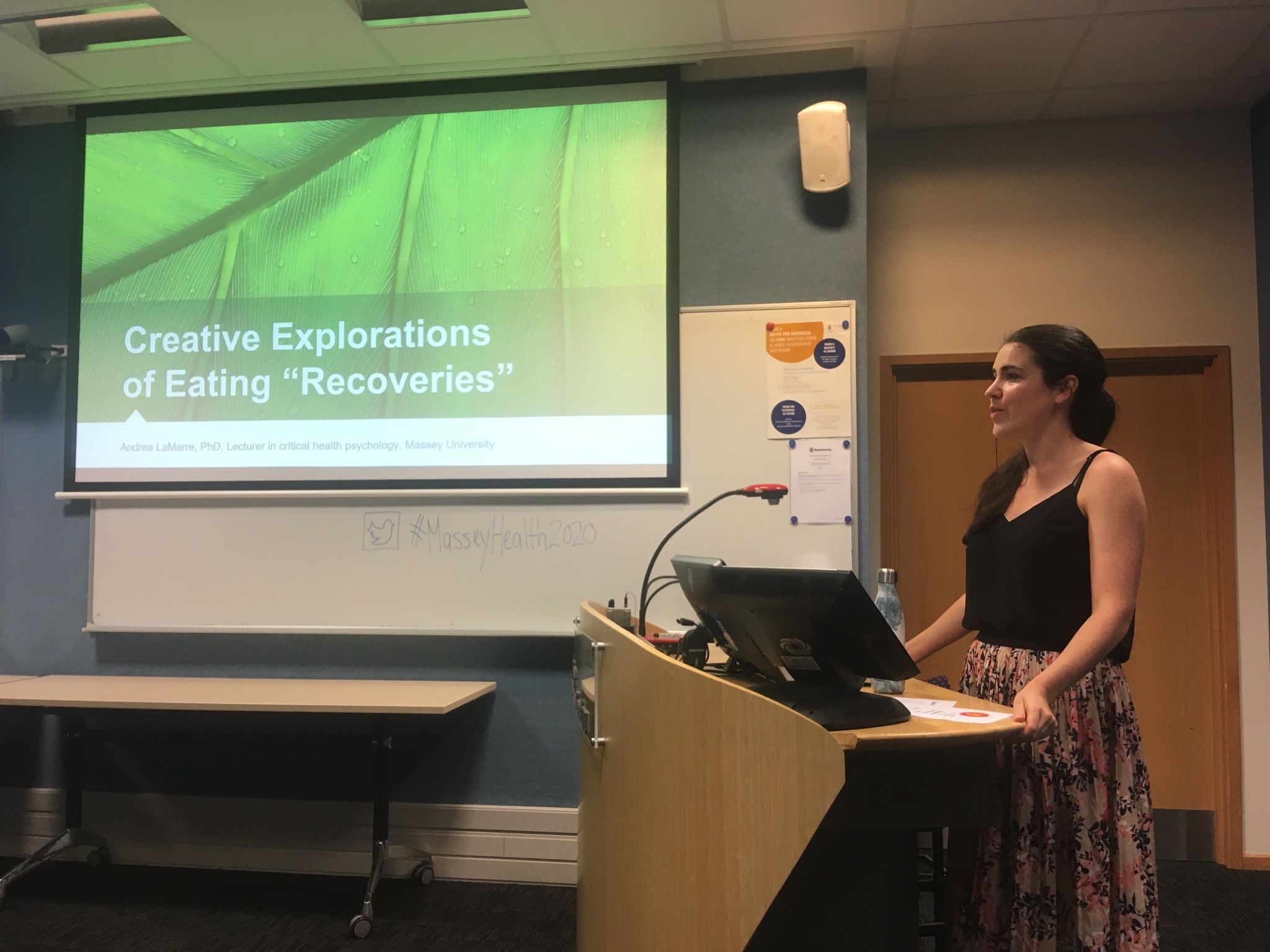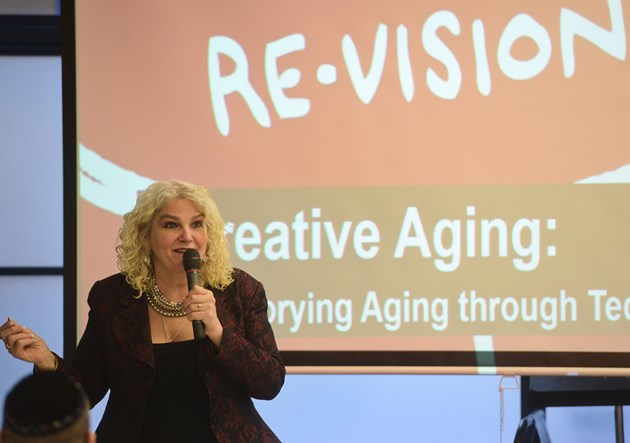Article Summary by Andrea LaMarre and Carla Rice
There is very little training around eating disorders across different areas and levels of healthcare. It is even less common to see training that shares the perspectives of people with lived experiences and their supporters with healthcare providers and healthcare provider trainees (HCPs). In this study, we wanted to better understand whether a brief intervention—sharing short (3-5 minute) films made by people in recovery from eating disorders and supporters—would impact how HCPs thought about eating disorders and recovery. We worked collaboratively with four people in recovery and one supporter to make films, which we screened with 22 HCPs. The HCPs filled out qualitative questionnaires before and after viewing the films, reflecting on whether seeing these films impacted their perspectives on eating disorders and recovery. Overall, participants enjoyed the films and commented on their artful nature. For some, the experience made them think differently about recovery and broadened their perspectives. HCPs wanted to see more stories reflecting a wider range of experience. They also wanted to know more about how to practically help people bringing these different life experiences into the treatment space reach a kind of recovery that worked for them. Our results were encouraging and create space for further research looking at how to more fully engage with filmmaking and story sharing around eating disorders and recovery.
Listen to Andrea LaMarre discussing the article, below:
Read the full article on the Medical Humanities journal website.
 Andrea LaMarre is a lecturer in Critical Health Psychology at Massey University (Albany Campus). She graduated with her PhD in 2018 from the University of Guelph; her dissertation research focused on eating disorder recovery, situated in sociocultural and relational contexts. She uses qualitative and arts-based approaches to explore eating distress, embodiment, and recoveries. Andrea is a regular speaker at national and international conferences and has published widely in both academic journals and in blog formats.
Andrea LaMarre is a lecturer in Critical Health Psychology at Massey University (Albany Campus). She graduated with her PhD in 2018 from the University of Guelph; her dissertation research focused on eating disorder recovery, situated in sociocultural and relational contexts. She uses qualitative and arts-based approaches to explore eating distress, embodiment, and recoveries. Andrea is a regular speaker at national and international conferences and has published widely in both academic journals and in blog formats.
 Carla Rice is Professor and Canada Research Chair in the College of Social and Applied Human Sciences at the University of Guelph, specialising in neo-materialist theory, embodiment, fat and disability studies, and arts-based and creative methodologies. She founded Re•Vision: The Centre for Art and Social Justice as an arts-informed research centre with a mandate to foster social well-being, equity, and justice. Currently Rice is Principal Investigator and Co-Director (with Dr. Eliza Chandler) of Bodies in Translation: Activist Art, Technology and Access to Life, a SSHRC-funded Partnership Grant that seeks to cultivate disabled, d/Deaf, fat, Mad, and aging arts using a decolonizing lens through engaging with 70+ community and institutional partners. She has received awards for research and mentorship, and has written on embodied difference, non-normative cultures, and accessibility and inclusion. More information about the Re•Vision Centre can be found at: https://projectrevision.ca/ and about Bodies in Translation at: https://bodiesintranslation.ca/.
Carla Rice is Professor and Canada Research Chair in the College of Social and Applied Human Sciences at the University of Guelph, specialising in neo-materialist theory, embodiment, fat and disability studies, and arts-based and creative methodologies. She founded Re•Vision: The Centre for Art and Social Justice as an arts-informed research centre with a mandate to foster social well-being, equity, and justice. Currently Rice is Principal Investigator and Co-Director (with Dr. Eliza Chandler) of Bodies in Translation: Activist Art, Technology and Access to Life, a SSHRC-funded Partnership Grant that seeks to cultivate disabled, d/Deaf, fat, Mad, and aging arts using a decolonizing lens through engaging with 70+ community and institutional partners. She has received awards for research and mentorship, and has written on embodied difference, non-normative cultures, and accessibility and inclusion. More information about the Re•Vision Centre can be found at: https://projectrevision.ca/ and about Bodies in Translation at: https://bodiesintranslation.ca/.